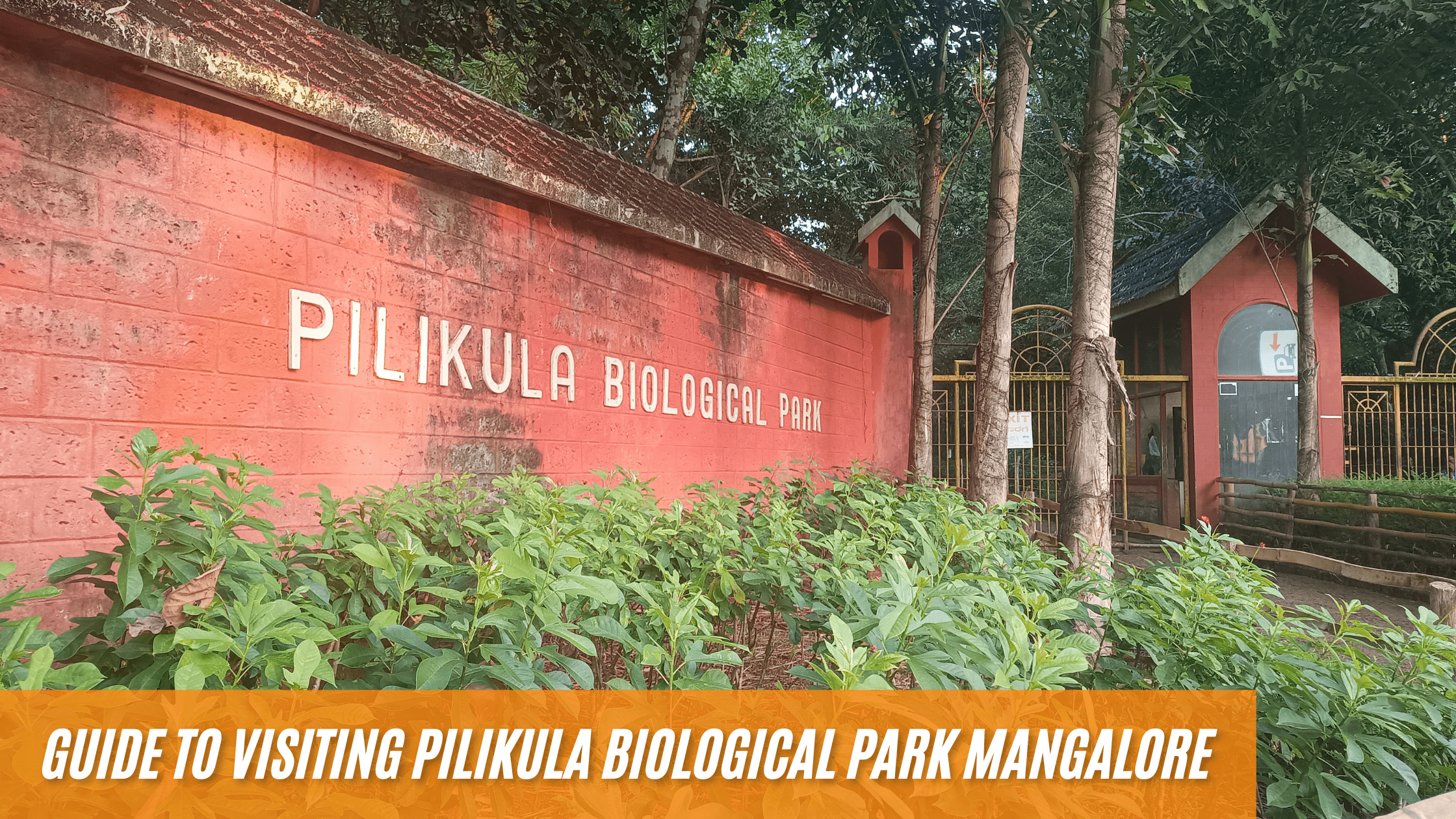Nestled in the lush greenery of Mangalore, Pilikula Biological Park, often referred to as Pilikula Zoo or Mangalore Zoo, is a haven for nature and wildlife enthusiasts. As one of Karnataka’s premier eco-tourism destinations, this expansive park offers a unique blend of education, recreation, and conservation. From majestic Royal Bengal Tiger, Asiatic Lion to vibrant bird species, the zoo is home to a wide variety of animals that provide visitors with a close-up view of India’s rich biodiversity.
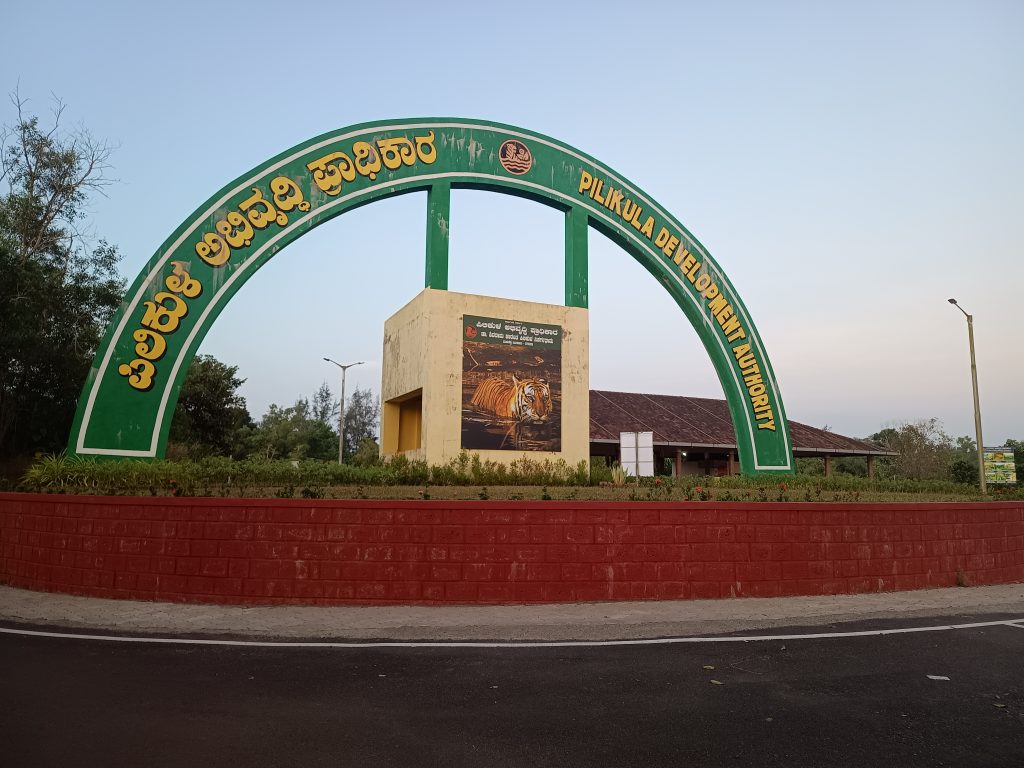
Beyond being a mere tourist spot, this zoo plays a vital role in promoting wildlife conservation and awareness. It’s an ideal destination for families, school groups, and photographers looking to explore nature in its purest form. Whether you’re a local resident or a traveller visiting Mangalore, Pilikula Zoo promises a day filled with adventure, learning, and tranquillity.
In this comprehensive guide, we’ll explore everything you need to know about this zoo – its history, attractions, animals, visitor information, tips for a memorable visit, and nearby places you can explore. Let’s dive into why this remarkable park should be on your travel bucket list!
Table of Contents
History and Significance of Pilikula Biological Park
Pilikula Biological Park, part of the renowned Dr. Shivarama Karanth Pilikula Nisargadhama, was established with a vision to conserve biodiversity and promote eco-tourism in Karnataka. Located in the outskirts of Mangalore, this park serves as a sanctuary for wildlife and an educational hub for visitors of all ages. Its name, “Pilikula,” translates to “Tiger Pond” in Tulu, referencing local folklore that this area once served as a natural habitat for tigers.
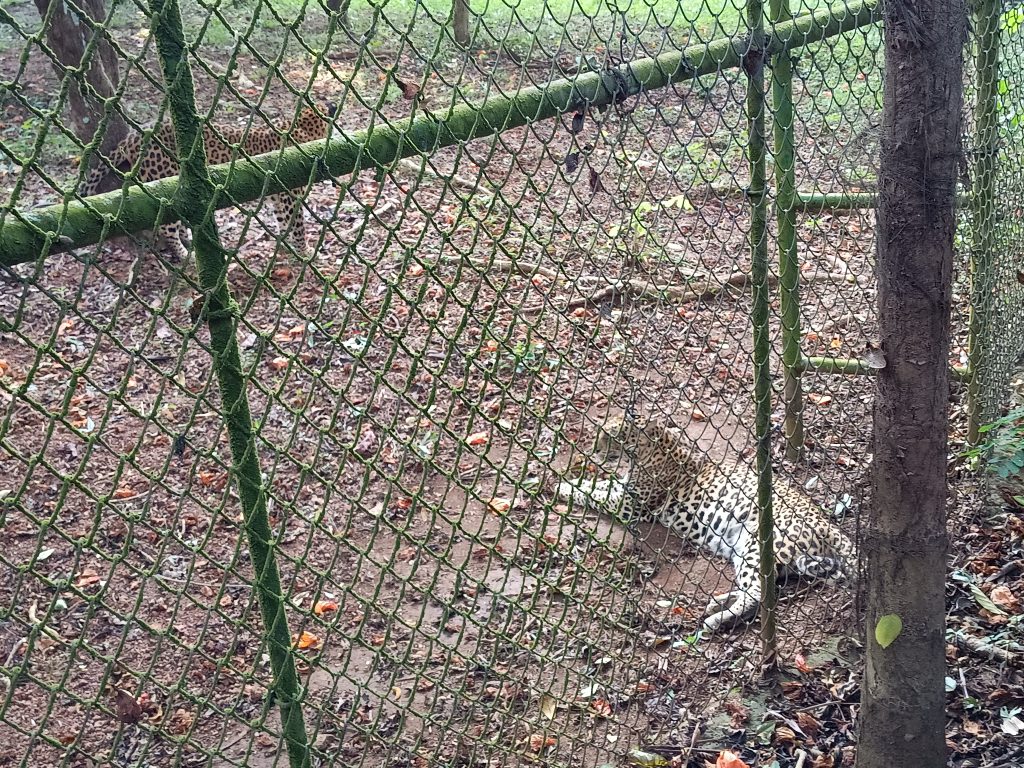
The park’s development began in the early 1990s as part of a larger eco-tourism project spearheaded by the Karnataka government. It aimed to create a space that not only showcased the region’s rich biodiversity but also contributed to the conservation of endangered species. Today, Pilikula Zoo stands as a testament to these efforts, housing a wide array of animals, birds, and reptiles in enclosures designed to mimic their natural habitats.
A key milestone in Pilikula’s journey was its recognition by the Central Zoo Authority (CZA) as a major zoological park in India. This accreditation reflects its commitment to animal welfare, breeding programs for endangered species, and public education. The park also collaborates with researchers and conservationists to raise awareness about the importance of protecting wildlife.
Flora and Fauna
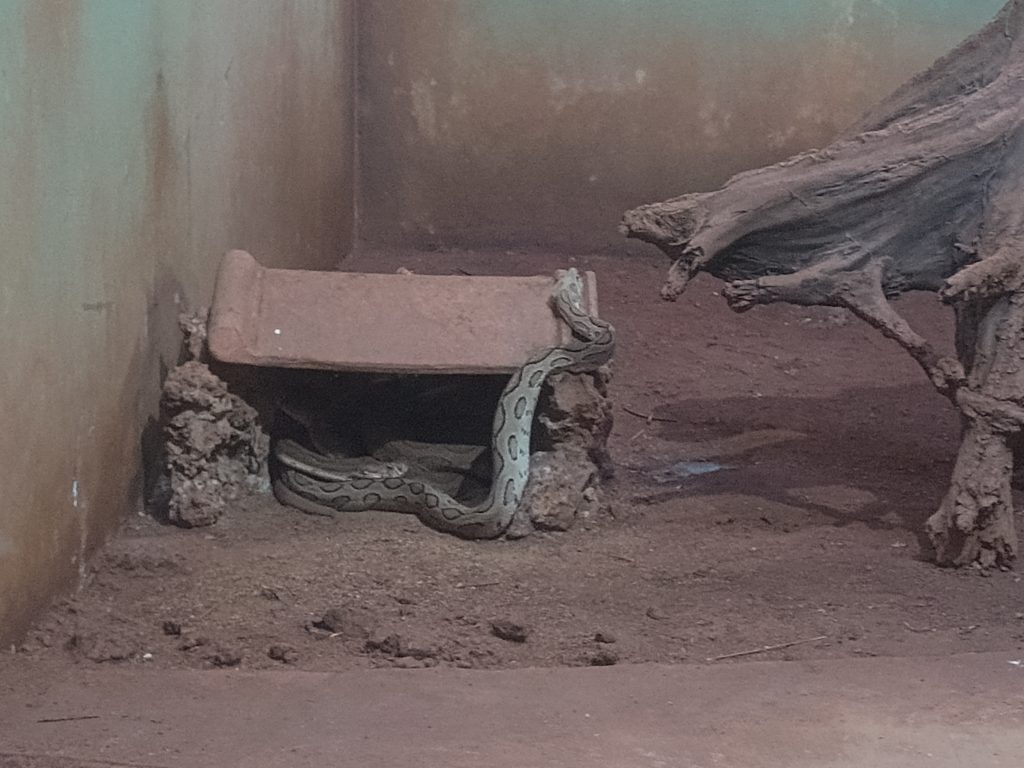
Pilikula Biological Park is a treasure trove of biodiversity, showcasing an impressive collection of flora and fauna native to the Western Ghats and beyond. Spanning over 150 acres, the park offers visitors an immersive experience with its carefully curated habitats designed to replicate the natural environments of the animals and plants it houses.
Fauna: Diverse Wildlife at Pilikula Zoo
The park is home to over 400 species of animals, reptiles, birds, and aquatic creatures, making it one of Karnataka’s most diverse zoological parks. Visitors can marvel at:
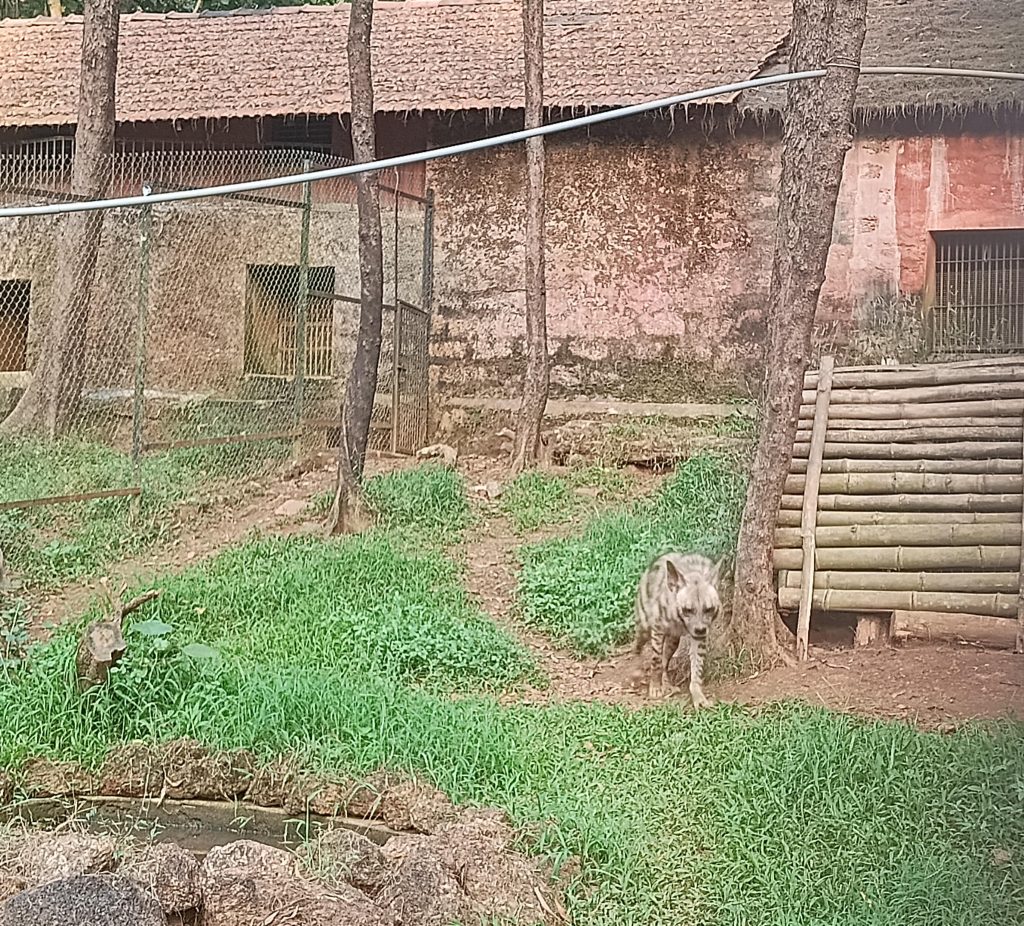
Mammals: Spot majestic Bengal tigers, leopards, sloth bears, and the playful lion-tailed macaques. The zoo also houses Indian jackals, wild boars, barking and spotted deer, offering a glimpse into the region’s native wildlife.
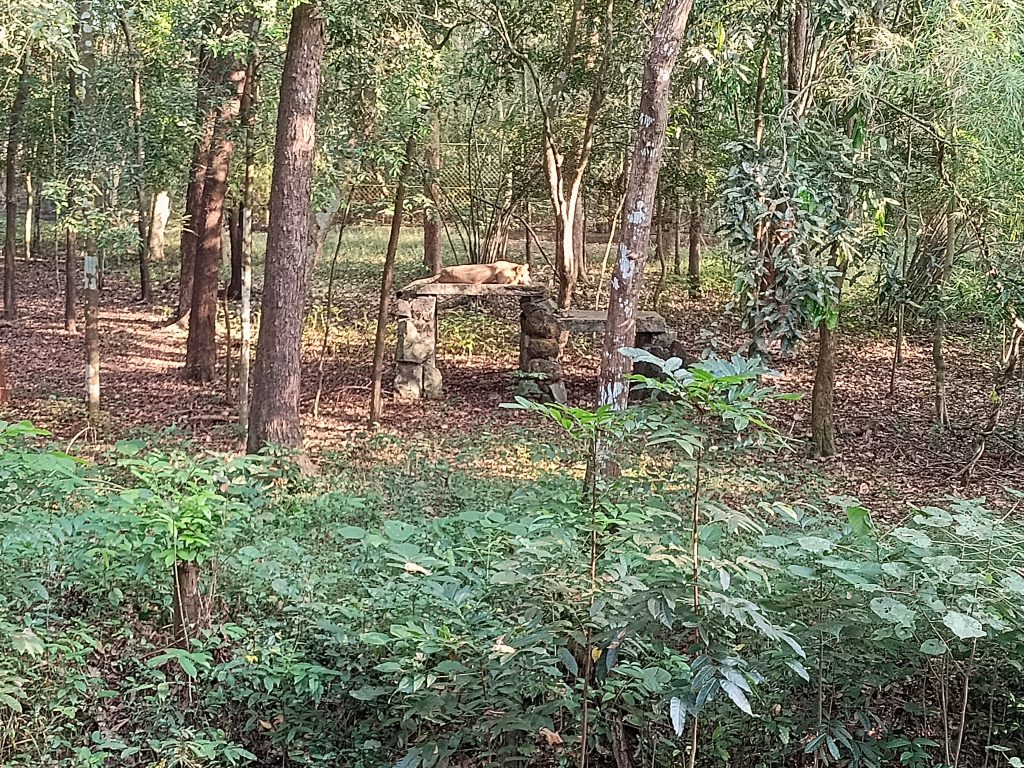
Birds: This park is a paradise for birdwatchers, featuring exotic species such as hornbills, pelicans, parakeets, and peacocks. The aviaries are meticulously designed to allow these birds enough space for limited flight, providing visitors with vibrant and lively displays. But there is still room for improvement.
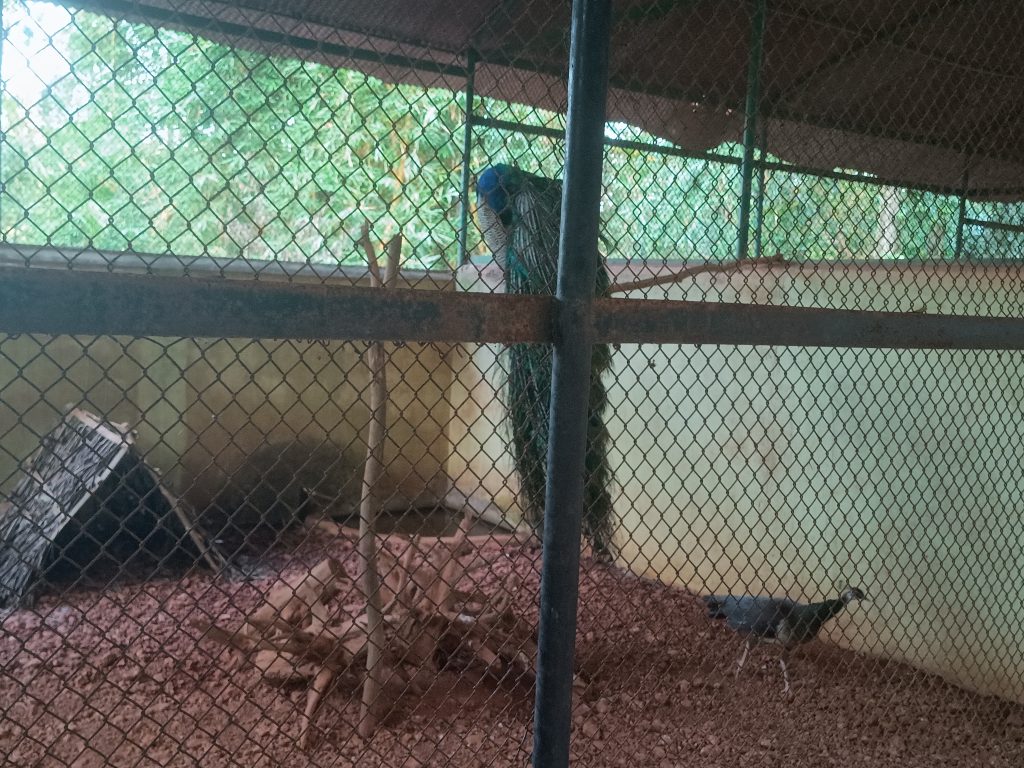
Reptiles: For reptile enthusiasts, the park offers an extensive collection, including Indian rock pythons, Russels Viper, Spectacled and King cobras, crocodiles, gharials and monitor lizards. The carefully maintained reptile enclosures ensure a safe yet thrilling experience.
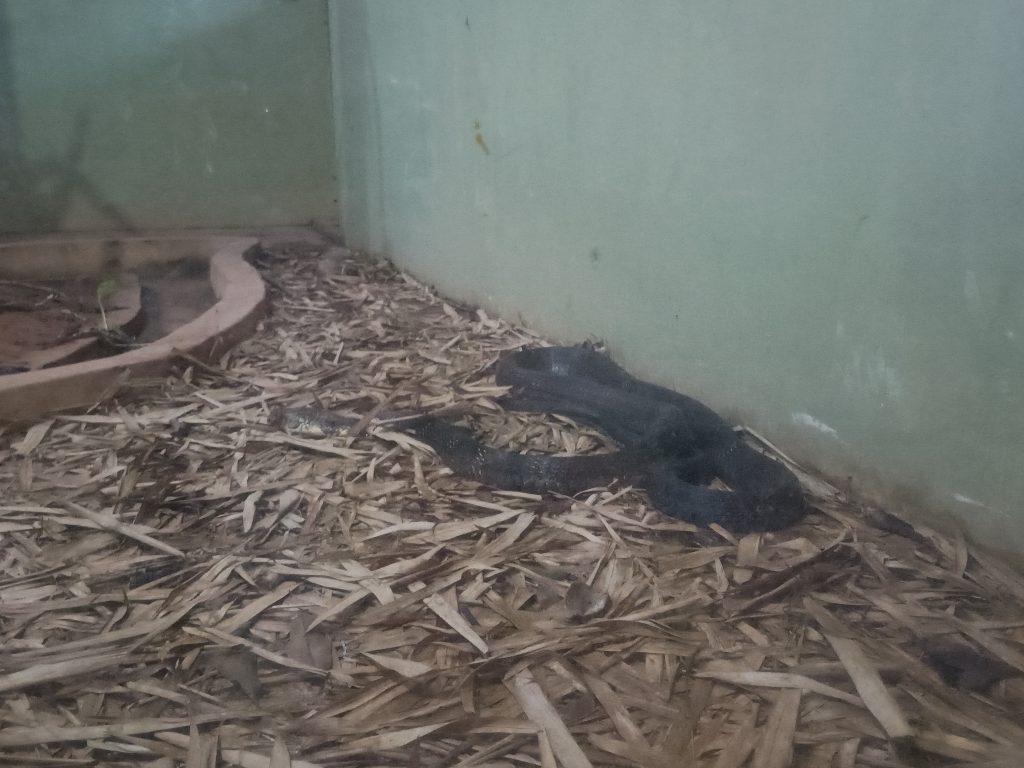
Flora: A Green Wonderland
Although the primary focus of the park is on its fauna, the lush greenery within the park creates a serene and refreshing environment. Native plant species and trees are strategically placed to enhance the natural feel of the park, contributing to the overall ecosystem and providing shade for visitors.
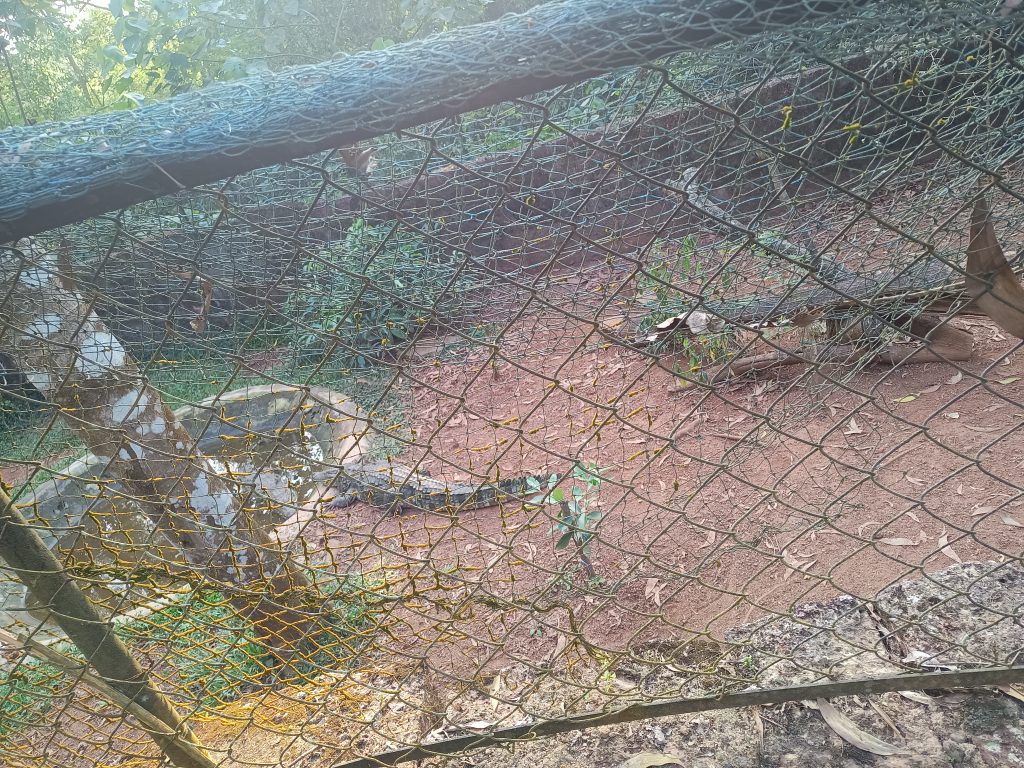
Conservation Initiatives
Pilikula Biological Park actively participates in conservation efforts, particularly for endangered species. Breeding programs for animals such as the lion-tailed macaque are among its key initiatives. The park also supports educational programs and collaborations with conservationists to raise awareness about the importance of protecting biodiversity.
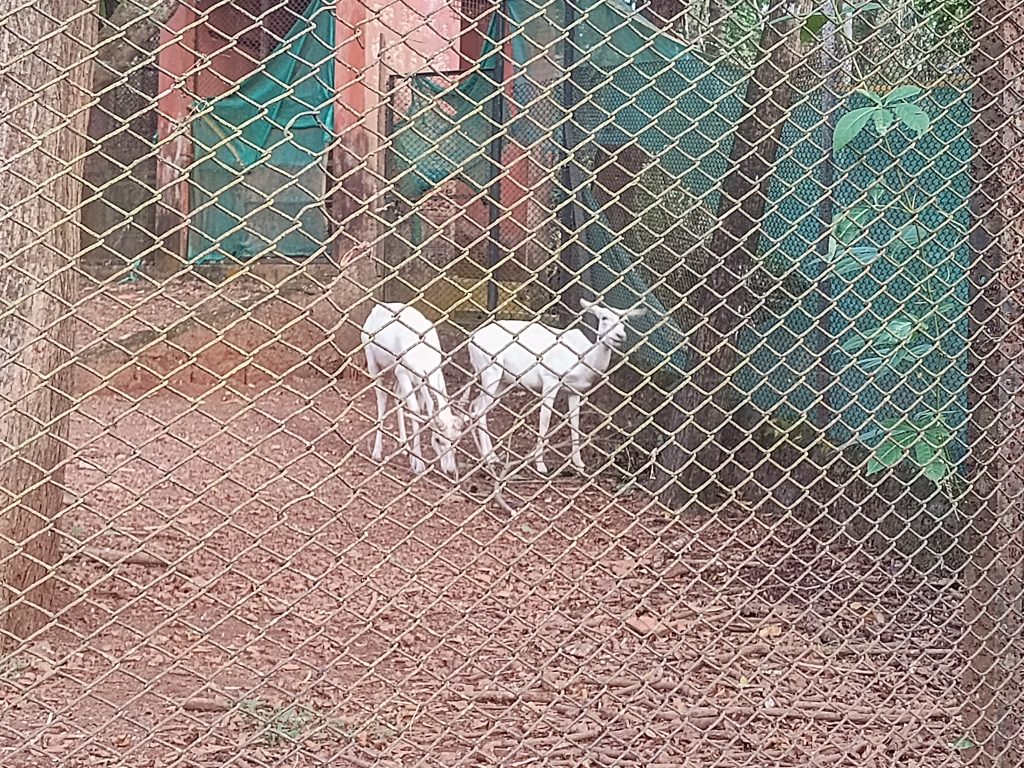
Visitor Experience
The combination of diverse wildlife and lush greenery makes Pilikula Biological Park a must-visit destination for nature enthusiasts and families. Visitors can enjoy a unique opportunity to observe animals in enclosures that closely replicate their natural habitats, making it an educational and memorable experience.
Visitor Information
Planning a visit to Pilikula Biological Park? Here’s everything you need to know about its location, accessibility, timings, ticket prices, and amenities to make your trip smooth and enjoyable.
Location and Accessibility
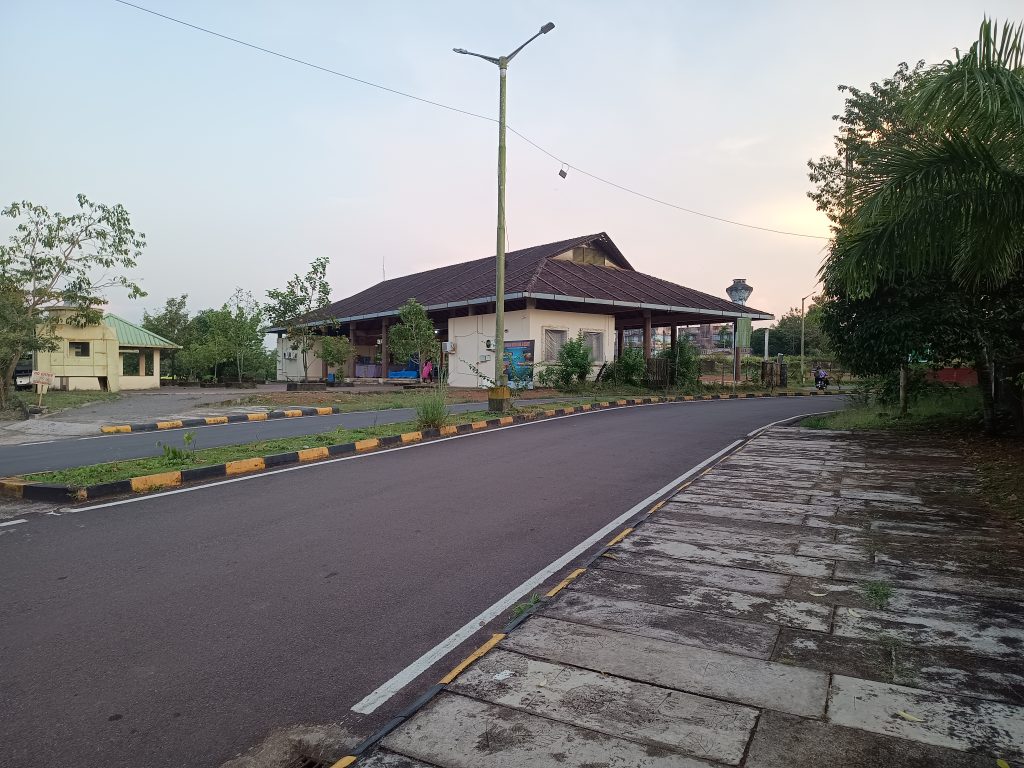
- Address: Pilikula Biological Park, Moodushedde, Vamanjoor, Mangalore, Karnataka 575028, India.
- How to Reach:
- From Mangalore City Centre: Pilikula Zoo is located approximately 12 km from the city centre. It takes around 30 minutes by road.
- Transport Options:
- Public Transport: Regular buses connect Mangalore to Pilikula Park Bus Stop, which is the nearest Bus Stop from the Pilikula Biological Park and from there, you can either take an auto-rickshaw to the park or walk directly as it’s only 700 metres.
Tip: Don’t forget to stop at the Pilikula Box Office to purchase the tickets in between before arriving at the entrance of Pilikula Biological Park. - Private Cabs: Ride-hailing services like Ola and Uber are available in Mangalore, providing convenient transportation to the zoo. However, opting for local taxi services is recommended to support local businesses and cab drivers.
- Self-Drive: Visitors can drive to the park via well-maintained roads, with ample parking available on-site.
- Public Transport: Regular buses connect Mangalore to Pilikula Park Bus Stop, which is the nearest Bus Stop from the Pilikula Biological Park and from there, you can either take an auto-rickshaw to the park or walk directly as it’s only 700 metres.
How can I reach Pilikula Biological Park by bus from Mangalore?
Reaching Pilikula Biological Park by bus is convenient and affordable. Several buses operate regularly from the State Bank Bus Stand in Mangalore and drop you near the park at the Pilikula Park Bus Stop. From there, it’s just a short walk to the park entrance.
Here are the available bus routes that connect to Pilikula Biological Park:
Bus Routes:
Bus No 3
Stops: State Bank → Falnir → Bendoorwell → Mallikatte → Kadri → Bikkarnakatta → Kulshekar → Kudupu → Vamanjoor → Moodushedde.
Bus No 3A
Stops: State Bank → Jyothi → Bendoorwell → Mallikatte → Kadri → Bikkarnakatta → Kulshekar → Kudupu → Vamanjoor → Moodushedde.
Bus No 3B
Stops: Mangaladevi → Kankanady → Mallikatte → Kadri → Bikkarnakatta → Kulshekar → Kudupu → Vamanjoor → Moodushedde.
Bus No 3C
Stops: Mangaladevi → Valencia → Nantoor → Kudupu Temple → Mangala Jyoti → Moodushedde.
Pro Tips:
1. Start from State Bank Bus Stand if you’re coming from central Mangalore.
2. The buses run frequently throughout the day, making them a reliable option.
3. Inform the conductor that you wish to get off at Pilikula Park Bus Stop to avoid confusion.
4. If you are unfamiliar with the area, ask locals or use navigation apps to confirm your location upon arrival.
This hassle-free bus service ensures that visitors can reach Pilikula Biological Park conveniently while enjoying a scenic route through Mangalore.
Timings and Ticket Prices
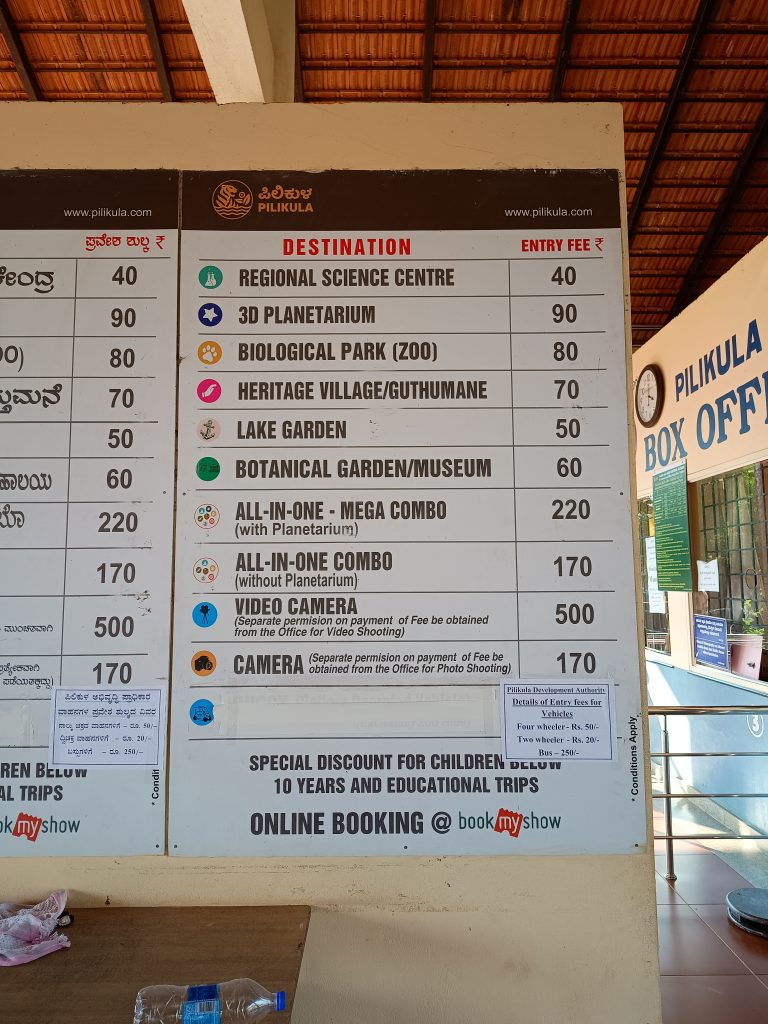
- Opening Timings:
- Tuesday – Sunday: 10:00 AM to 5:00 PM.
- Monday: Closed.
- Open on all Public holidays.
- Entry Fees:
- Adults: ₹80
- Children (below 10 years): ₹50
- Special Discounts:
- Group discounts are available for school and college trips. Contact the park in advance for bookings.
- Free entry on certain government-specified eco-tourism days (subject to official zoo announcements).
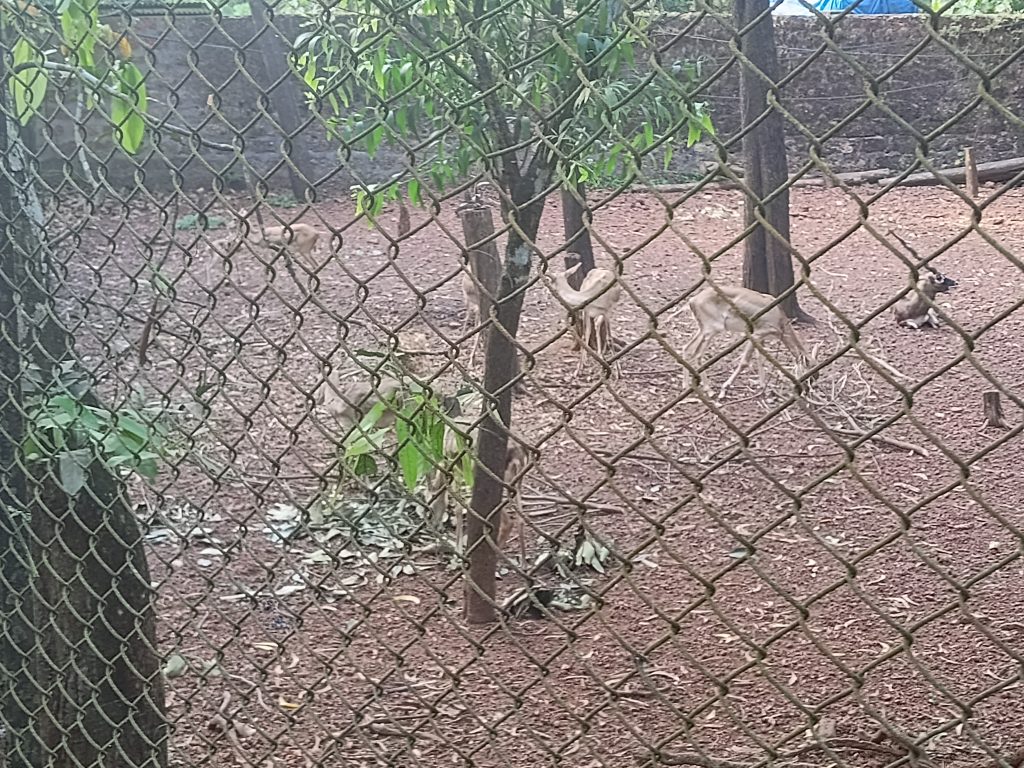
Amenities
- Parking: A spacious parking area is available for cars, bikes, and buses.
- Toilets: Clean and well-maintained toilets are available both near the entrance and inside the zoo premises for visitor convenience.
- Restrooms: Clean and well-maintained restrooms are located at multiple spots within the park.
- Cafeteria: A small cafeteria offers snacks, beverages, and light meals. One restaurant is located just outside the entrance of the Zoo.
- Souvenir Shop: Visitors can purchase eco-friendly souvenirs, including handicrafts and wildlife-themed items, as keepsakes.
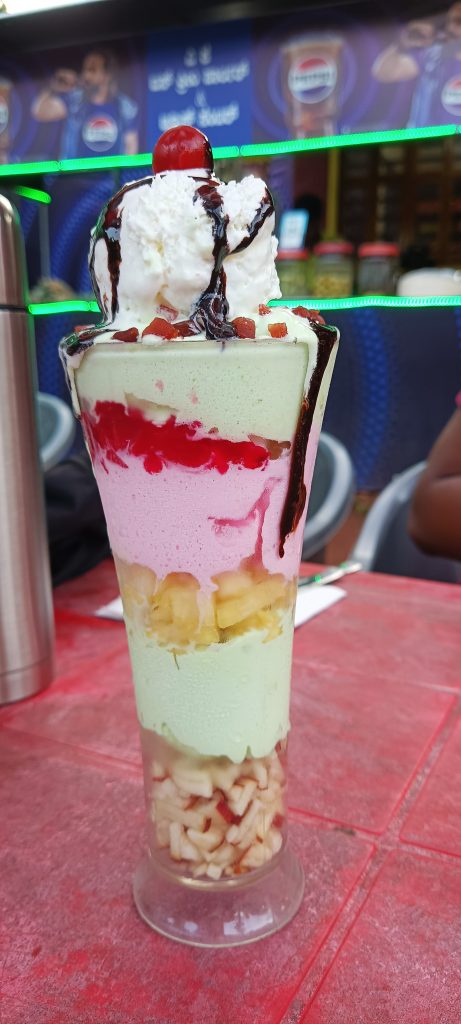
With its convenient location, affordable entry fees, and visitor-friendly amenities, Pilikula Biological Park is designed to provide an enjoyable experience for nature and wildlife enthusiasts of all ages.
Top 5 Things to Do at Pilikula Biological Park
A visit to Pilikula Biological Park is more than just a walk through its enclosures. With its engaging activities and serene atmosphere, the park ensures an enriching experience for visitors of all ages. Here are the top 5 things to do during your visit:
1. Explore Diverse Wildlife
The park is home to over 400 species of animals, reptiles, and birds, making it a haven for nature and wildlife enthusiasts. Some highlights include:
- Watch the majestic Bengal tigers, sloth bears, and leopards in naturalistic enclosures.
- Marvel at vibrant birds like hornbills, peacocks, and parakeets in spacious aviaries.
- Observe reptiles such as crocodiles, Indian rock pythons, and cobras.
For those who prefer not to walk around the large zoo, an electric vehicle is available for hire at just ₹100. This convenient option allows visitors to relax while exploring the park and is especially useful for families with young children or elderly visitors who may find walking challenging.
Pro Tip: Visit during the morning hours for a chance to see animals at their most active.
2. Participate in Educational Programs and Competitions
Pilikula Zoo goes beyond wildlife viewing by offering engaging educational initiatives and competitions. These activities aim to raise awareness about wildlife conservation and often include:
- Drawing and photography contests. The winning drawings and the names of the winners are showcased on the official website of the zoo.
- Awareness sessions about topics like biodiversity conservation.
- Special events such as the Wildlife Week competitions on themes like “Co-existence with Wildlife.”
How to Participate: Check the Pilikula Zoo Events Page for updates on upcoming events and participation details.
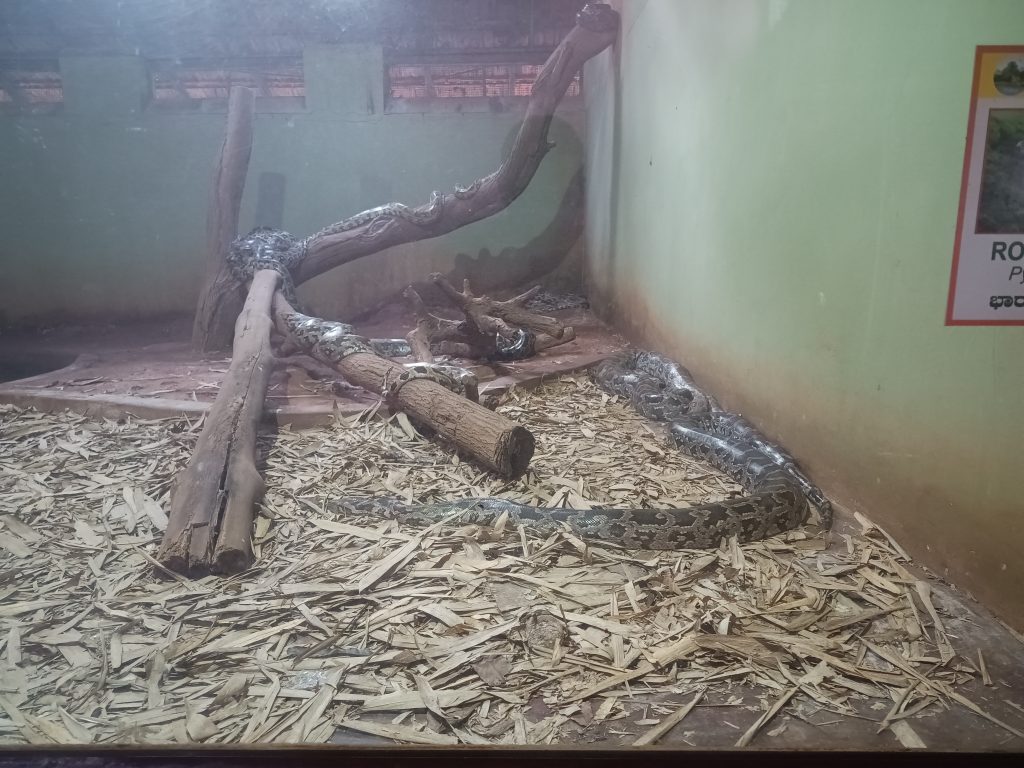
3. Capture Stunning Wildlife Photography
Pilikula’s thoughtfully designed enclosures and natural surroundings provide excellent opportunities for wildlife photography. The open spaces allow for unobstructed views, making it a favourite spot for photographers.
Photography Tips:
- Use a zoom lens for close-ups of animals without disturbing them.
- Visit early morning or late afternoon for the best lighting conditions.
- Avoid using flash to ensure a natural look and prevent disturbing the animals.
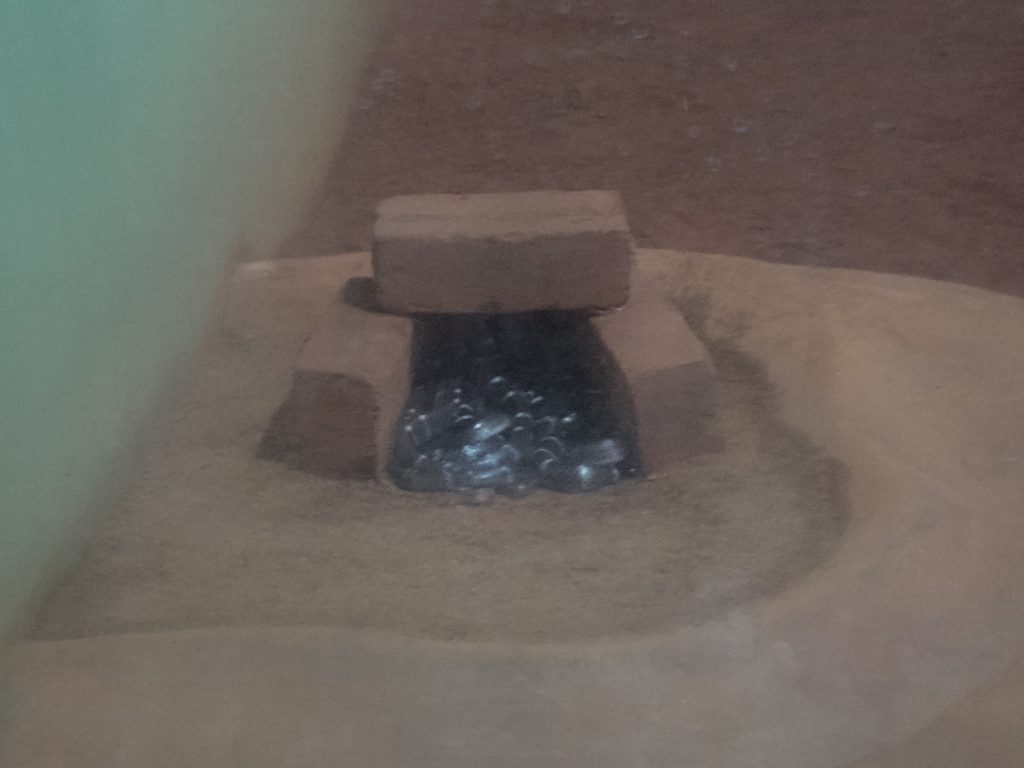
4. Relax in the Serene Surroundings
The lush greenery within the park makes it a perfect spot to unwind and connect with nature. Take a leisurely walk along shaded pathways or sit back and enjoy the tranquil ambiance.
Why It’s Special:
- The park’s well-maintained landscape and natural flora enhance its serene vibe.
- Perfect for families and those seeking a peaceful retreat from city life.
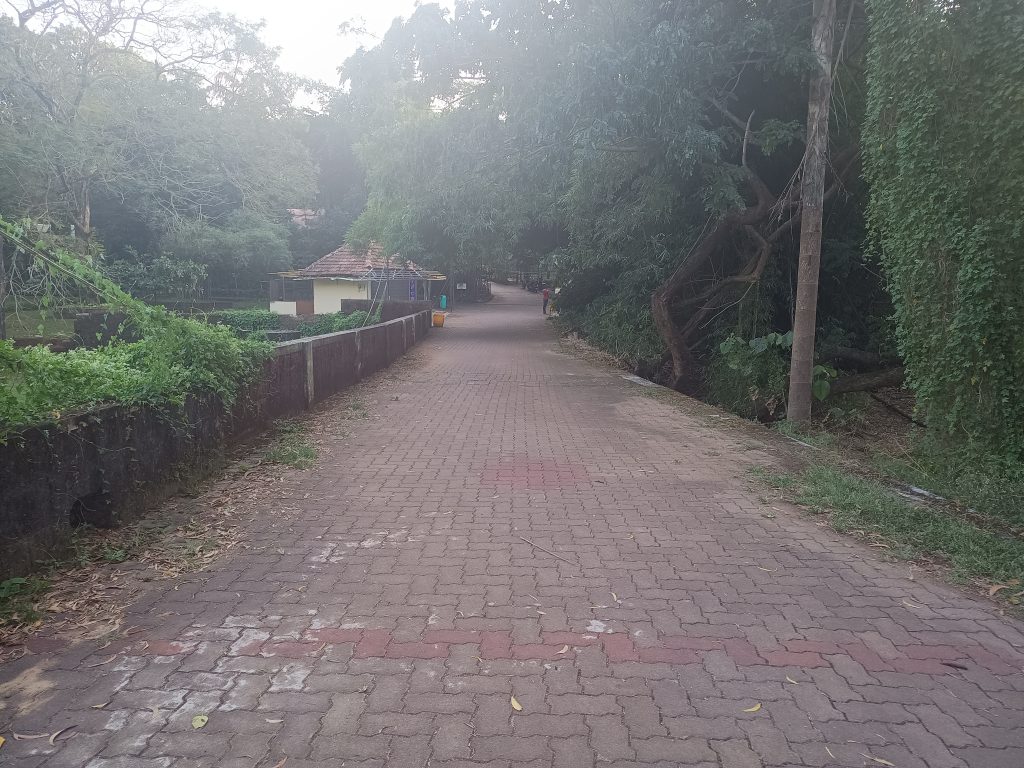
5. Visit the Cafeteria and Souvenir Shop
After exploring the park, recharge at the cafeteria offering light snacks and beverages. Don’t miss the souvenir shop, where you can buy eco-friendly memorabilia and support the park’s conservation efforts.
What’s Available:
- Cafeteria: Snacks, drinks, and coffee to refresh after a long walk.
- Souvenirs: Handicrafts and wildlife-themed items for a memorable keepsake.
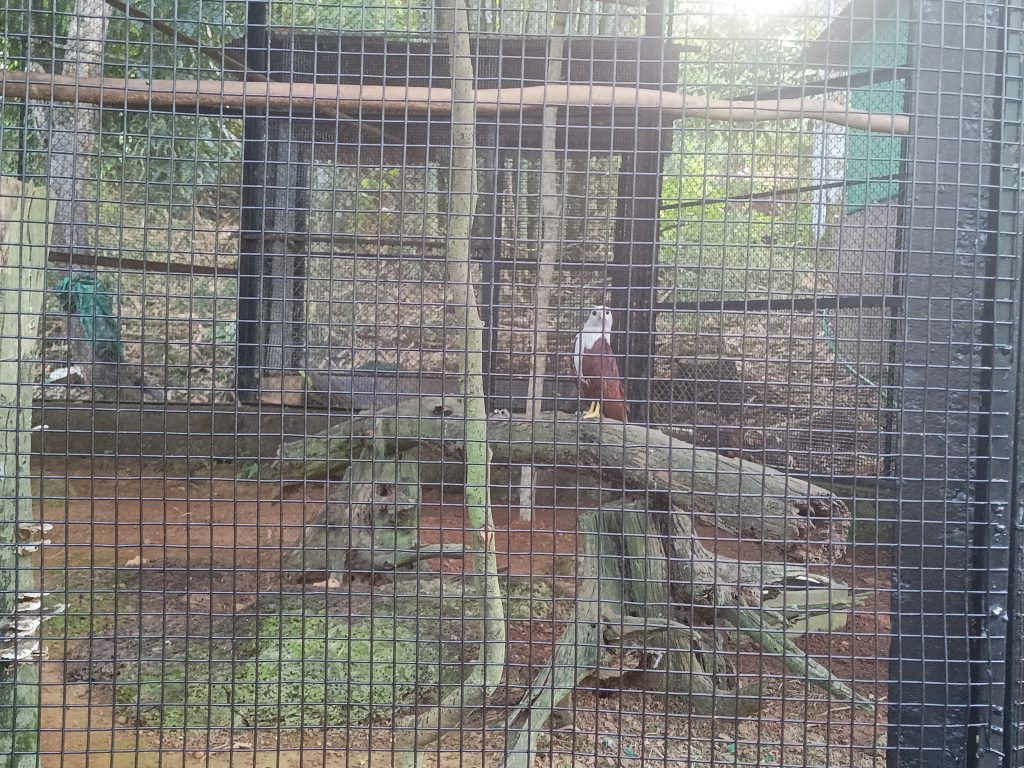
Bonus Tip: Engage Kids in Learning
For families, Pilikula Zoo offers educational activities tailored for children, making it a fun and informative experience. Encourage kids to participate in quizzes and learn about animal behaviour.
From exploring diverse wildlife to participating in interactive competitions, Pilikula Biological Park offers a well-rounded experience for visitors. Don’t forget to plan your activities ahead of time to make the most of your trip!
Top 5 Tips for Visitors
Make the most of your visit to Pilikula Biological Park with these handy tips to ensure a smooth and enjoyable experience:
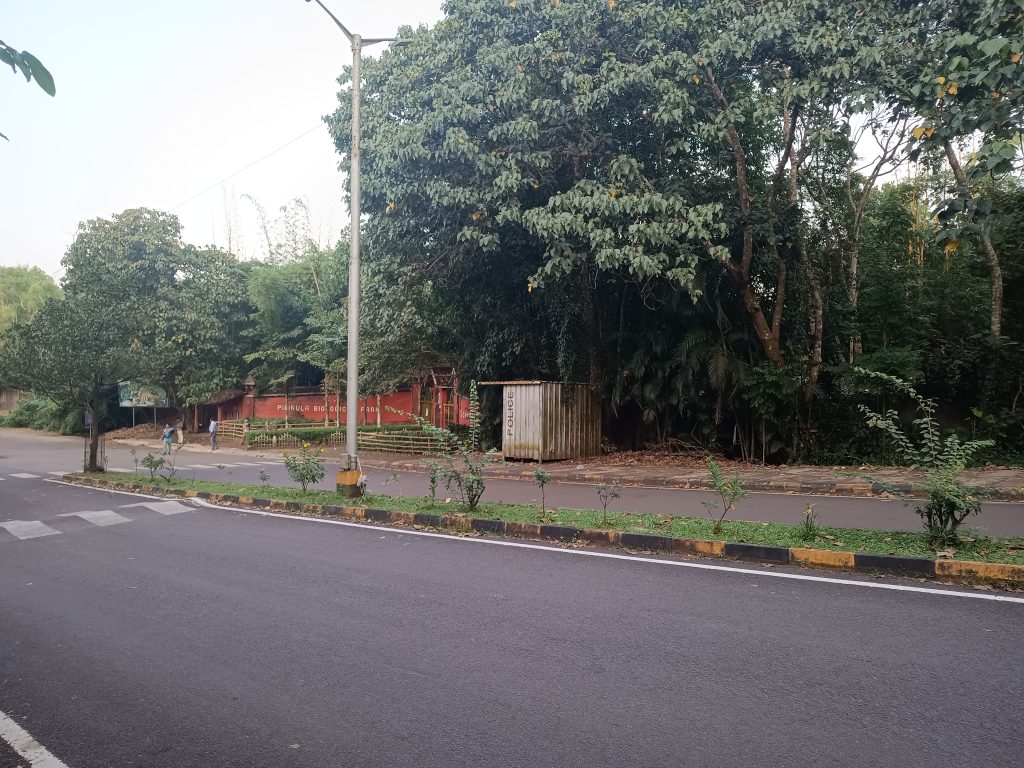
1. Best Time to Visit
- Visit during the cooler hours of the morning (10:00 AM to 11:30 AM) to see animals at their most active.
- Avoid visiting in the afternoon during hot seasons, as animals may retreat to shaded areas.
2. Wear Comfortable Clothing
- Wear breathable, light clothing and comfortable walking shoes, as the zoo spans a large area.
- Carry sunscreen, hats, and sunglasses to protect yourself from the sun.
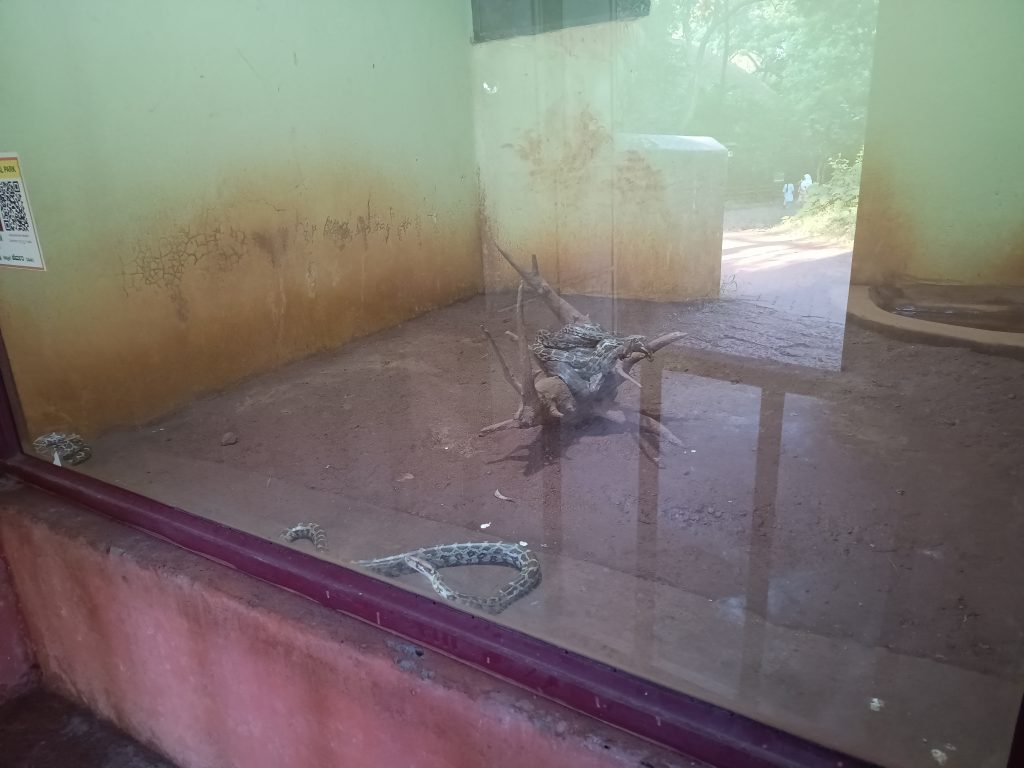
3. Bring Essentials
- Pack a water bottle to stay hydrated, especially during hot weather. However, drinking water facility is also available inside the Zoo.
- Consider bringing snacks for children, though food is available at the cafeteria.
4. Make Use of Visitor Facilities
- Take advantage of the electric vehicle service if walking long distances is a concern, especially for elderly visitors or families with young children.
- Use the toilets and restrooms located at multiple points inside the park.
5. Follow Park Rules
- Respect the animals by keeping noise levels low and refraining from feeding or disturbing them.
- Dispose of waste in designated bins to help maintain the park’s cleanliness and natural beauty.
By following these tips, you can enjoy a hassle-free and memorable experience at Pilikula Biological Park while contributing to its conservation efforts.
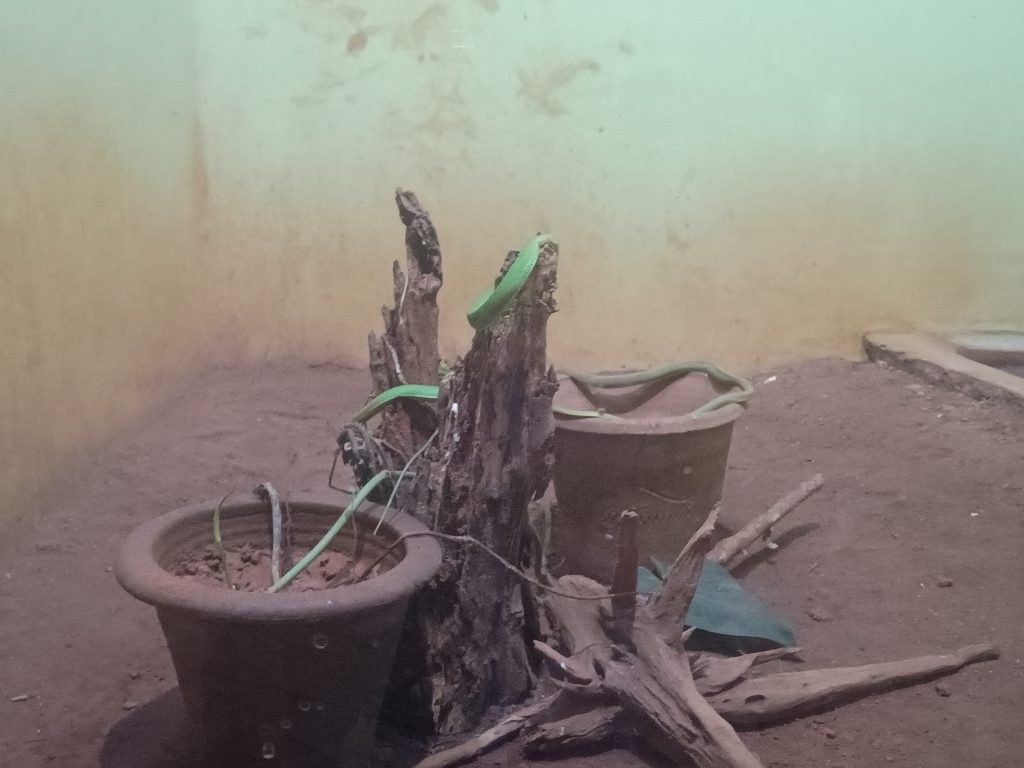
Pilikula Biological Park Photos
Nearby Attractions
Pilikula Biological Park is surrounded by several must-visit attractions that can make your trip even more memorable. After enjoying the park’s wildlife and greenery, take some time to explore these nearby destinations:
1. Tannirbhavi Beach
Tannirbhavi Beach is a serene retreat known for its golden sands and tranquil waves. Ideal for families and couples, this beach is less crowded and offers a peaceful atmosphere to unwind after your zoo visit.
2. Panambur Beach
Panambur Beach is a lively and well-maintained spot popular for water sports, camel rides, and beachside eateries. It’s perfect for visitors seeking adventure and entertainment.
3. Sultan Battery
This historic watchtower built by Tipu Sultan is a popular site for history enthusiasts. Situated along the banks of the Gurupura River, it offers picturesque views and a tranquil ambiance.
Visiting these nearby attractions along with Pilikula Biological Park creates a perfect mix of nature, adventure, and relaxation. Whether you want to lounge by the sea or explore Mangalore’s history, there’s something for everyone!
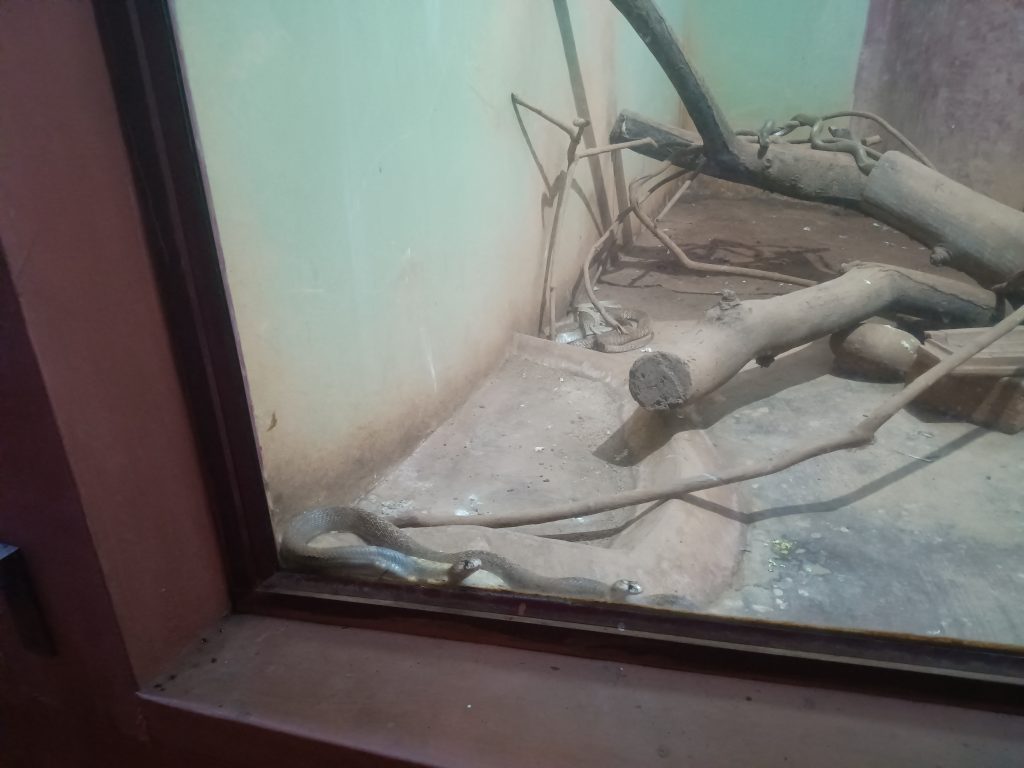
Conclusion
Pilikula Biological Park is a must-visit destination in Mangalore, offering a perfect blend of wildlife exploration, conservation awareness, and family-friendly activities. From its diverse range of animals and reptiles to the serene natural surroundings, the park ensures a memorable experience for all visitors. Convenient amenities like electric vehicle rentals and nearby attractions enhance its appeal. Whether you’re a nature enthusiast, a family with kids, or an adventurer, Pilikula Zoo promises an enriching and enjoyable outing. Plan your visit today to explore Mangalore’s rich biodiversity and create lasting memories!

